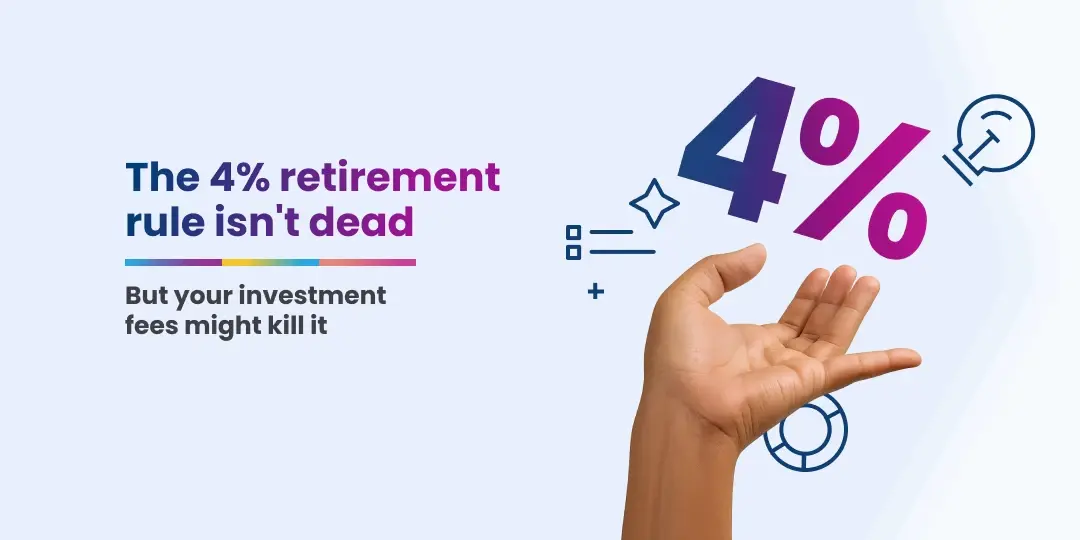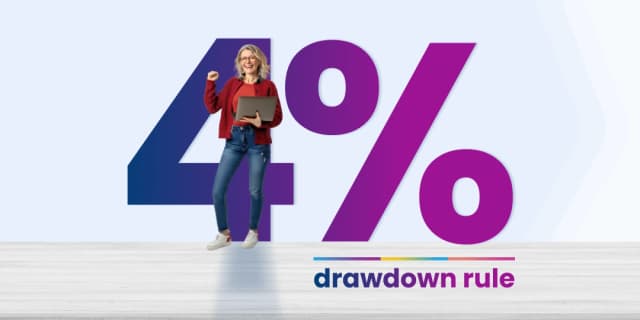Working Longer vs Retiring Now: What's Best for Your Retirement?
18 November 2024
The uncomfortable truth about retirement in South Africa - Rands and Sense by 10X [video]
We sit down with 10X Investment Consultant lead Andre Tuck and discuss the retirement savings crisis in South Africa. We also delve into living annuities, retirement annuities, TFSAs and everything in between. Read more
![The uncomfortable truth about retirement in South Africa - Rands and Sense by 10X [video]](/_next/image?url=https%3A%2F%2Fimages.ctfassets.net%2Fyqvz0zwovkbq%2F5ipSTnRq5Dp25fyghm5kGQ%2F02c801c78d5e1ca9280bfd34d7602368%2FAndre_Tuck_podcast_cover_image__1_.webp&w=828&q=75)
Deciding when to retire isn't always up to you. While some worry about retiring too early, for most South Africans, the bigger question is whether they can afford to retire at all. It's sobering that only 6% of us have enough saved up for retirement. That's why it's worth examining how working longer - among other factors - might affect your retirement readiness.
Plan for a comfortable retirement with our
Living Annuity calculatorWhat Difference Does One More Year Make?
You might be surprised by how much impact just one extra year of work can have on your retirement picture.
Here's why:
First, you're still adding to your nest egg. If you're earning R80,000 monthly and putting away 15% for retirement, that's another R144,000 in savings for the year - and that's before counting your employer's contributions or the tax benefits.
But the benefit is two-fold. Working an extra year doesn't just mean more savings - it also means one less year of relying on those savings.
Let's break this down with real numbers:
Say you're aiming for R50,000 monthly from your retirement savings to maintain your lifestyle. With a 5% yearly drawdown, you'd need about R12 million saved up to make that work for 20+ years of retirement. By working just one more year, you're not only shortening your retirement period but also giving your existing savings more time to grow.
And speaking of growth - your current savings can do significant work in that extra year. A R5 million portfolio growing at 6% above inflation would add about R300,000 to your retirement pot - without you adding a single Rand. That could be enough to cover several months of retirement expenses.
Building blocks to a lasting Living Annuity
Our panel of experts discusses living annuities, sustainable drawdown rates, offshore investing, and everything else one might need to consider to ensure a comfortable retirement. Read more
![Building blocks to a lasting Living Annuity [webinar + transcript]](/_next/image?url=https%3A%2F%2Fimages.ctfassets.net%2Fyqvz0zwovkbq%2F4dZzwtwSkZ19hmRrVa6Zyb%2F770741ecc4b2ae3deda48fa06da42718%2FWebinar_recording_cover_1920X1080.webp&w=828&q=75)
A Simple Truth About Expenses
Every Rand you trim from your monthly expenses is actually worth double in retirement planning.
Here's what this means:
If you reduce your monthly spending by R5,000, that's R5,000 extra you could save each month before retirement. But more importantly, it means you'll need R1.2 million less in total savings to fund that same R5,000 monthly expense in retirement (assuming a 5% drawdown rate).
The 4% retirement rule isn't dead (but your investment fees might kill it)
4% has historically been a good rule of thumb when it comes to income drawn down from retirement investments such as a living annuity. But is it still relevant, and when might it be too much? Read more

There's an additional benefit: When you're drawing less from your Living Annuity, you're not just preserving more of your capital - you're likely saving on tax too. Remember, you pay income tax on whatever you draw from your Living Annuity. Drawing R30,000 monthly instead of R35,000 can mean significant tax savings over the years - money that stays invested, working for you throughout retirement.
The Critical Impact of Investment Fees
While managing your daily expenses is important, there's another cost that can dramatically affect both when you can retire and how long your money will last: investment fees. The difference between paying 1% versus 2% or 3% in annual fees might seem small, but it can have a profound impact on your retirement timing. You should always know your Effective Annual Cost (EAC). If you don't, get it, and use our EAC calculator to see if you could be doing better.

Let's look at a practical example: Imagine you have R6 million in retirement savings and need R25,000 monthly income. With investment fees of 1% or less, you might achieve this with a 5% drawdown rate. However, if you're paying 2% in fees, you'd need to reduce your drawdown rate to 4% to generate the same income with confidence that your savings will last through retirement. This means you'd need R7.5 million in savings instead of R6 million - that's R1.5 million more just to compensate for higher fees.
Compare your retirement investments
Effective annual cost calculatorThis fee difference could mean either:
- Working several more years to accumulate the extra R1.5 million, or
- Reducing your monthly income in retirement by R5,000 to maintain a sustainable drawdown rate
In other words, when you invest with lower fees, you could potentially retire earlier, draw the same income from a smaller retirement pot, or keep your drawdown rate lower to help your money last longer.
9 out of 10 people do better with 10X
Our Living Annuity Calculator demonstrates this clearly: lower fees mean more of your investment returns stay invested and compound over time, rather than being eroded by costs. This can make the difference between retiring now or having to work several more years to build up additional savings.
You Don't Have to Choose All or Nothing
Retirement doesn't have to be an all-or-nothing decision. Many South Africans are finding creative ways to blend different income sources as they transition into retirement.
Consider property rental. A rental property bringing in R8,000 monthly might not sound substantial, but it can make a meaningful difference to how much you need to draw from your retirement savings. Or consider using your expertise for consulting work - even R10,000 a month from occasional projects means R120,000 less you need to take from your retirement pot each year.
Money mistakes to avoid during retirement
Retirement should be a time for relaxation. These tips will help you reduce the stress of your golden years, and retire better! Read more

Making Smart Lifestyle Adjustments
Not every expense reduction requires a major sacrifice. In fact, many changes in retirement can naturally lead to lower costs:
Housing often represents the largest expense in retirement. Downsizing to a smaller home or moving to a more affordable area can substantially reduce monthly expenses while potentially freeing up capital from your property sale.
Transport costs typically decrease in retirement. Without a daily commute, many retirees find they can manage with one car instead of two, or switch to a more economical vehicle.
Entertainment and dining patterns naturally evolve. Many retirees discover they spend less while enjoying life more, as they have time to plan and cook meals at home or enjoy entertainment during off-peak hours.
How much do you need to retire comfortably?
Investment Consultant Team Lead Andre Tuck is often asked by clients, "How much money should I have to retire comfortably?" In this article he gives some key considerations and rules of thumb to apply to help your retirement planning. Read more

Finding Your Balance
The decision of when to retire depends on balancing several key factors: your savings level, expenses, ability to generate additional income, and personal circumstances. While working longer can improve your financial position, smart expense management and additional income sources might allow you to retire sooner than you think.
Living annuity investment strategies: make your money last throughout retirement
A living annuity is a retirement savings investment product that if properly managed, can provide income during your retirement and a nest egg for your beneficiaries after you pass away. Read more

Consider these key steps:
- Calculate your essential monthly expenses
- Review opportunities for expense reduction
- Explore potential additional income sources
- Use our Living Annuity Calculator to understand how much income you can sustainably draw from your retirement savings
Retirement planning isn't just about reaching a specific savings number - it's about creating a sustainable financial strategy that works for your unique situation. Whether you choose to work longer, reduce expenses, develop additional income streams, or combine these approaches, understanding their relative impact will help you make the best decision for your future.
Related articles
How can we 10X Your Future?
Begin your journey to a secure future with 10X Investments. Explore our range of retirement products designed to help you grow your wealth and achieve financial success.


